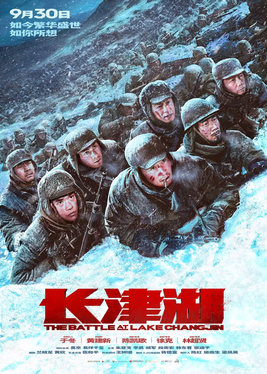- Jan 17, 2017
- 16,617
- 27,931
Lei's Real Talk
25.3K subscribers
The battle of Lake Changjin was an important fight during the Korean war. It was one of the largest battlefield confrontation between the China’s PLA and US military and the deadliest. It’s been turned into a Chinese war propaganda movie to prepare the public for a possible US China war over Taiwan. It’s important to revisit the Korean War history to gain insights into the current US China military confrontation. The irony of the movie is that Beijing is promoting a battle that cost its elite troops 70 years ago that was reserved for attacking Taiwan. The Chinese propaganda might have predicted that history will repeat itself?
Movie referenced:

 en.wikipedia.org
en.wikipedia.org
update:
The Battle of Chosin Reservoir, also known as the Chosin Reservoir Campaign or the Battle of Lake Jangjin (Korean: 장진호 전투; Hanja: 長津湖戰鬪; RR: Jangjinho jeontu; MR: Changjinho chŏnt'u), was an important battle in the Korean War.[c] The name "Chosin" is derived from the Japanese pronunciation "Chōshin", instead of the Korean pronunciation
25.3K subscribers
The battle of Lake Changjin was an important fight during the Korean war. It was one of the largest battlefield confrontation between the China’s PLA and US military and the deadliest. It’s been turned into a Chinese war propaganda movie to prepare the public for a possible US China war over Taiwan. It’s important to revisit the Korean War history to gain insights into the current US China military confrontation. The irony of the movie is that Beijing is promoting a battle that cost its elite troops 70 years ago that was reserved for attacking Taiwan. The Chinese propaganda might have predicted that history will repeat itself?
Movie referenced:

The Battle at Lake Changjin - Wikipedia
update:
The Battle of Chosin Reservoir, also known as the Chosin Reservoir Campaign or the Battle of Lake Jangjin (Korean: 장진호 전투; Hanja: 長津湖戰鬪; RR: Jangjinho jeontu; MR: Changjinho chŏnt'u), was an important battle in the Korean War.[c] The name "Chosin" is derived from the Japanese pronunciation "Chōshin", instead of the Korean pronunciation
Last edited:
